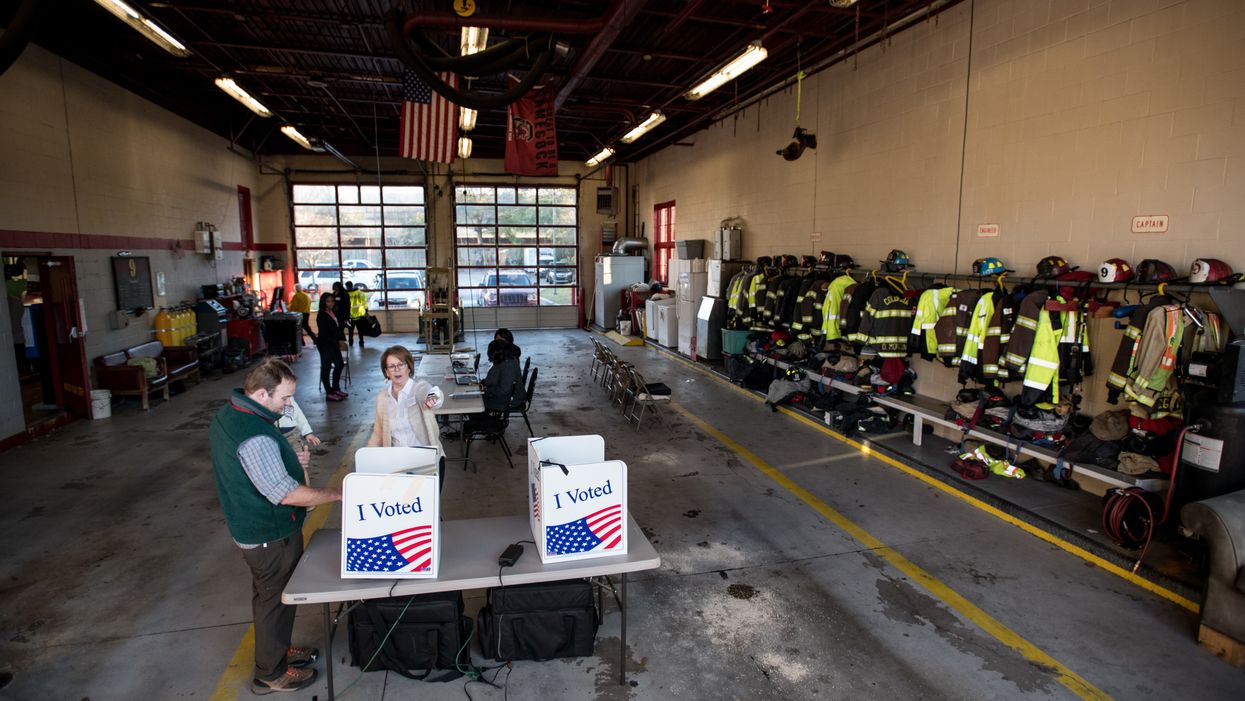Opdycke is the president of Open Primaries, a national election reform organization that advocates for open and nonpartisan primary systems.
For weeks leading up to the pivotal South Carolina primary, the media warned of a sinister plot hatched by President Trump and Rush Limbaugh called "Operation Chaos."
Pundits warned that tens of thousands of sleeper-cell Republicans were being prepped to flood the polls during the Democratic presidential contest two weekends ago in a cynical (but legal in states with nonpartisan voter registration) effort to push Bernie Sanders to victory — on the theory the Vermont senator would be the weakest Trump opponent in the general election. Hundreds of hours of cable news histrionics reinforced this narrative. Social media was abuzz with dire warnings about the dangers of allowing people to vote in ways not deemed appropriate or legitimate.
Except it was all hype. It didn't happen.
So what's the problem?
The fear-mongering before the primary, which former Vice President Joe Biden won decisively, has empowered the opponents of such open election systems. They now have the political cover they need to say, "Open primaries are insane. We need more partisan control over who can vote!"
According to the exit polling, 5 percent of the people who voted in the South Carolina primary were Republicans. Just 5 percent. That's about the normal amount for South Carolina, which does not have partisan voter registration. In a typical election in the state, between 3 percent and 5 percent of self-identified Republicans vote in the Democratic primary and between 3 and 5 percent of Democrats cross the opposite way. The share of the vote was so small that the pollsters weren't able to draw any useful conclusions from it.
The real story is that 26 percent of those who voted Feb. 28 were independents. That's what advocates of closed primaries advocates really fear. Not "party raiding," the usual term in political circles for what would have been had Operation Chaos come to pass. The power of such efforts has been repeatedly debunked by academic studies. Instead, Republican and Democratic leaders fear the rapid increase in the number of voters who aren't loyal to and won't join either party. That's the motivation for the overreaction to Trump and Limbaugh's provocation.
Trump called for South Carolina's Republicans to flood the Democratic primary. They didn't. But the opponents of open elections — Democrats and Republicans alike — don't care. They whip up fear and use it to advance closed primary legislation, particularly in states with long histories of voter suppression such as Missouri, Tennessee and South Carolina. The media moves on, but the damage is done. One lone article has been written exposing that the Trump-Limbaugh effort was laughably ineffective.
In 2016, insiders from both parties joined together to decry the dangers of open primaries in California and how the system of open elections in the nation's most populous state would derail the entire race. In a rare show of bipartisan agreement, House GOP Leader Kevin McCarthy declared that he hated his state's system and his fellow Californian Nancy Pelosi, then leader of the House Democratic minority, pronounced that an open primary "is not a reform. It is terrible."
But the primary came and went without problems, save one (if you even want to call it that): More than 4 million independents cast ballots. Today open primaries in California are supported by a lopsided majority of voters, Democrats and Republicans as well as independents.
Overreaction to the Trump-Limbaugh hoax — combined with the cyclical assault on voting reforms by partisans in both parties during election season — is the real Operation Chaos. Create fear. Convince the American people, including many in the growing election reform movement, that contests open to all voters are an invitation to chaos. Ignore the fact that they don't do any such thing. Then press forward efforts to close down open primaries, lock out independent voters, obstruct reform and further construct and reinforce the partisan silos that are ruining American civic life.
The American people aren't being fooled, even if seasoned journalists are. Open elections are the bedrock of democracy. Continuing the effort to build a more perfect union is a requirement of American citizenship. It's time to take the fight to the insiders of both parties with a very simple demand: Let all voters vote.




















Trump & Hegseth gave Mark Kelly a huge 2028 gift